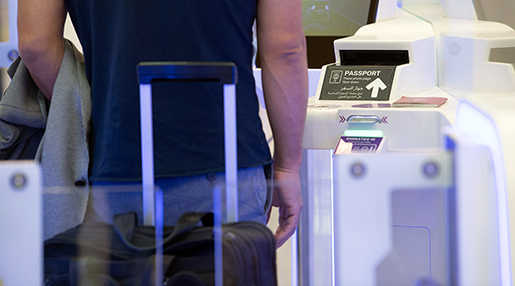
The rapidly changing landscape of the pandemic restrictions has seen the energy, resources and marine (ERM) sector adapt quickly to find new ways of keeping employees mobilized against a backdrop of border closures, flight cancelations and quarantine restrictions. As these restrictions began to ease in some markets it was still hard to imagine a return to what was in business travel, including crew rotational travel in the ERM sector.
 One such example has shown the ingenuity required to find solutions that considered both the business and employee impact on operations. On Thursday April 2, 2020 the Western Australia (WA) Government announced the closure of its borders effective 11.59pm Sunday night. A global energy company providing essential services required urgent movement of 28 rotators from the east coast of Australia to Perth (west coast). Failure to get a replacement team into the state before the borders closed would result in the rotators potentially facing a 14-day quarantine period before on-signing, this could push teams already on-site beyond health and safety regulations. The added complexity of the situation included knowledge that an extended closure may further impact the continuity of business-critical site operations. So, what do you do when you are potentially locked out of a state? You move employees and their families across the country to a new temporary home in Perth, WA.
One such example has shown the ingenuity required to find solutions that considered both the business and employee impact on operations. On Thursday April 2, 2020 the Western Australia (WA) Government announced the closure of its borders effective 11.59pm Sunday night. A global energy company providing essential services required urgent movement of 28 rotators from the east coast of Australia to Perth (west coast). Failure to get a replacement team into the state before the borders closed would result in the rotators potentially facing a 14-day quarantine period before on-signing, this could push teams already on-site beyond health and safety regulations. The added complexity of the situation included knowledge that an extended closure may further impact the continuity of business-critical site operations. So, what do you do when you are potentially locked out of a state? You move employees and their families across the country to a new temporary home in Perth, WA.
An urgent call went out to identify which rotating crew would be willing to move for up to 6 months - their families in tow. The decision to move entire families from the east coast of Australia to Perth, a 4,000-kilometer distance, made in hours, not days. Whilst families were scrambling to pack belongings for an extended stay, CWT ERM teams across Australia, Europe and Canada flew into action working seamlessly - with the time of day or night irrelevant given looming border closures. By 2.50am the following day, less than 12hrs after the initial request, all bookings were complete and families began to fly into their new reality with everyone relocated within 24 hours.
Ensuring the health and wellness of not only employees, but families, creates new challenges for ERM organizations. What are the new considerations for accommodation, ground transport, schools, location, and accessibility of essential shopping and local community services? An obvious need is for a self-contained apartment, but for those who cannot make the immediate decision to relocate their families and now arriving after border closure, simple things like a self-contained apartment with a balcony becomes a must have, especially for those with young families who are facing 14 days of self-quarantine.
 But what of the sausage dog? The bird? The rabbit? I kid you not! Unfortunately, in some cases, leaving the family pet at the last minute for up to 6 months is not an option – so they came too. While securing flights in an environment of cancelations and fleet groundings was the immediate and obvious challenge, family relocations for extended periods, some required extended periods of self-quarantine, presents many never before logistical considerations requiring immediate attention and ongoing management. Urgency, flexibility, compassion and determination became the name of the game, and this is not achieved without the commitment and cooperation of all service suppliers working collaboratively to deliver solutions and value to clients, especially in a crisis.
But what of the sausage dog? The bird? The rabbit? I kid you not! Unfortunately, in some cases, leaving the family pet at the last minute for up to 6 months is not an option – so they came too. While securing flights in an environment of cancelations and fleet groundings was the immediate and obvious challenge, family relocations for extended periods, some required extended periods of self-quarantine, presents many never before logistical considerations requiring immediate attention and ongoing management. Urgency, flexibility, compassion and determination became the name of the game, and this is not achieved without the commitment and cooperation of all service suppliers working collaboratively to deliver solutions and value to clients, especially in a crisis.
Author: Peter Brady, Vice President CWT Energy, Resources & Marine.
Connect with us
Tell us about your travel program
If you’re ready to explore how we can help you and receive communications about our products, services and insights, please complete the form below.
